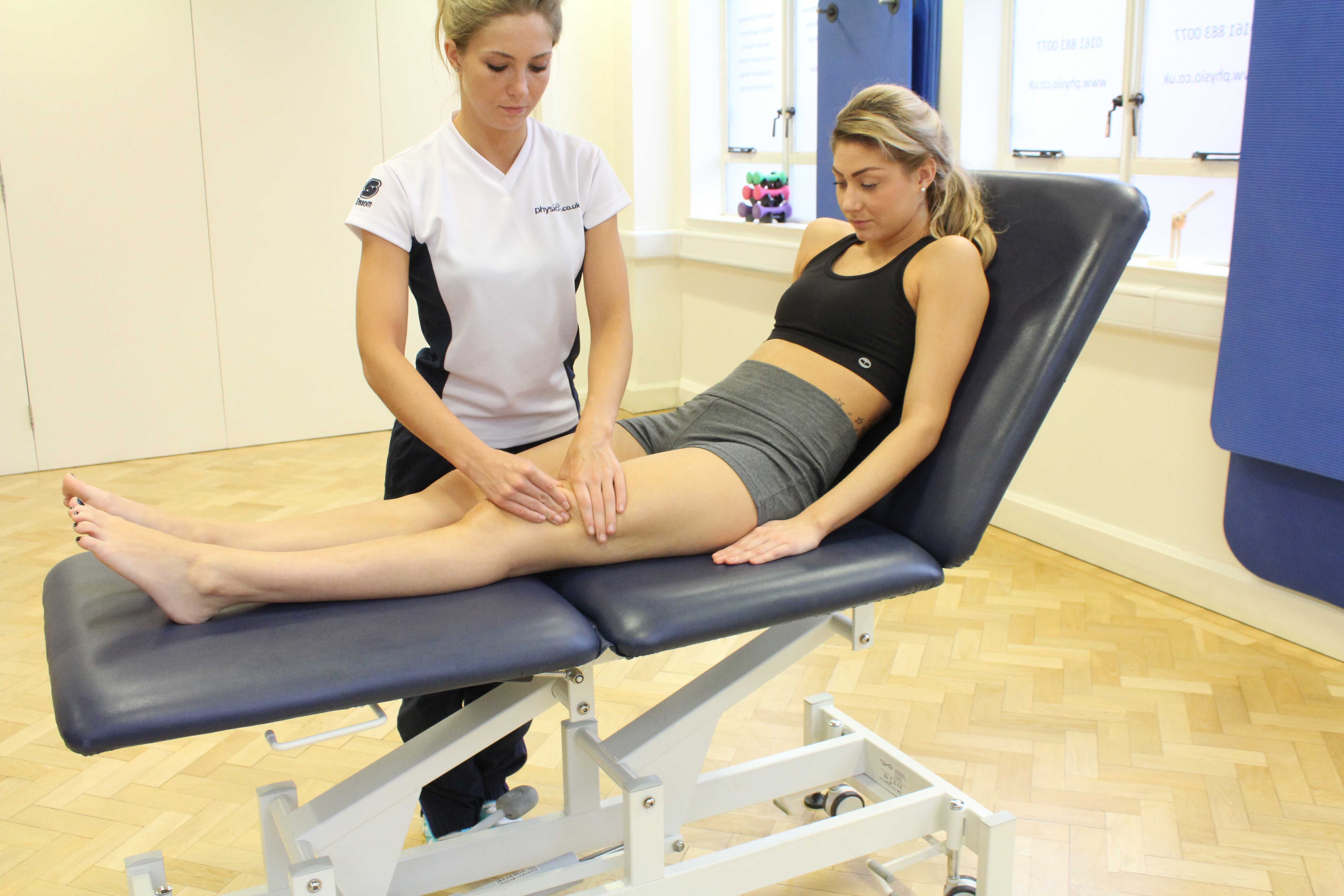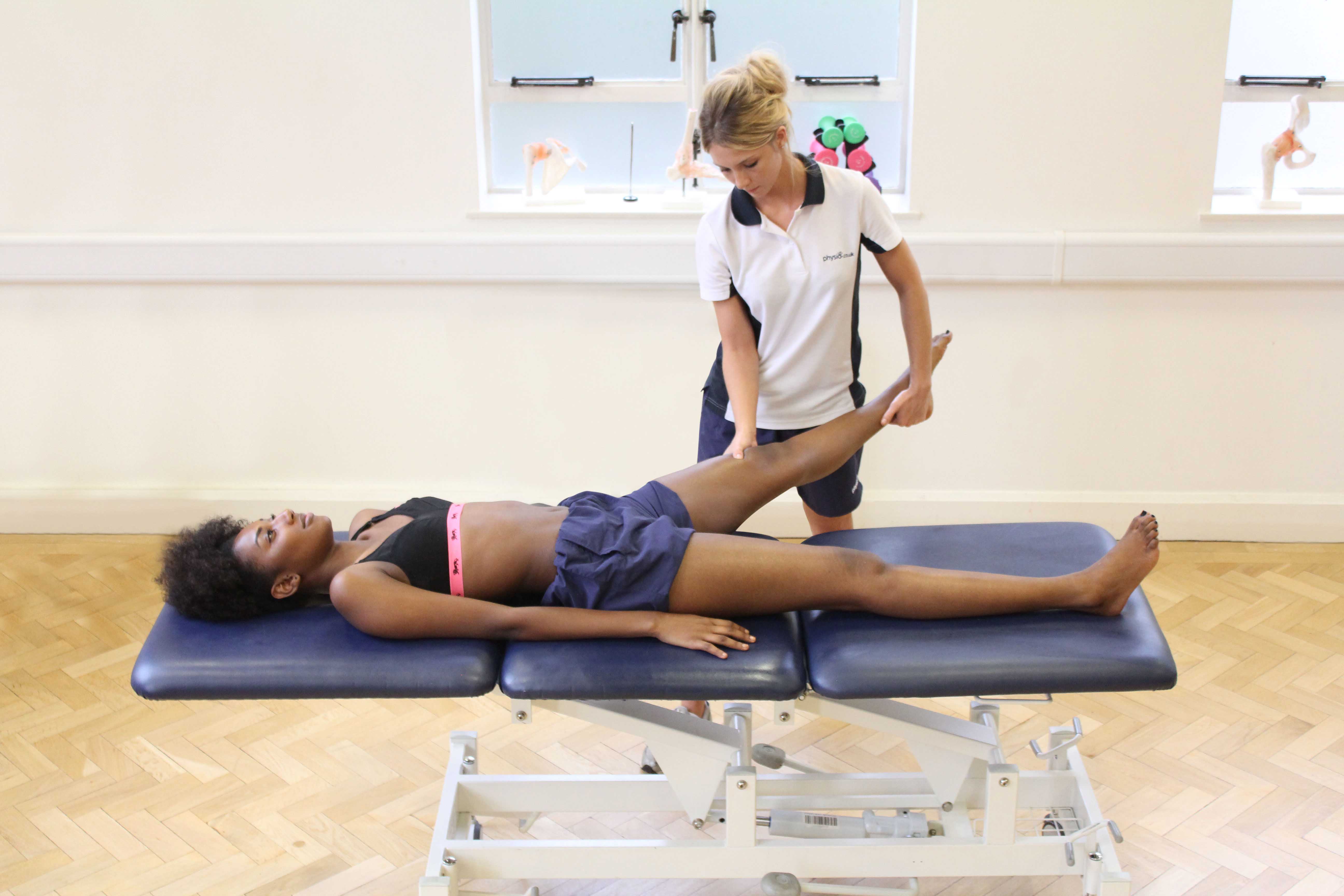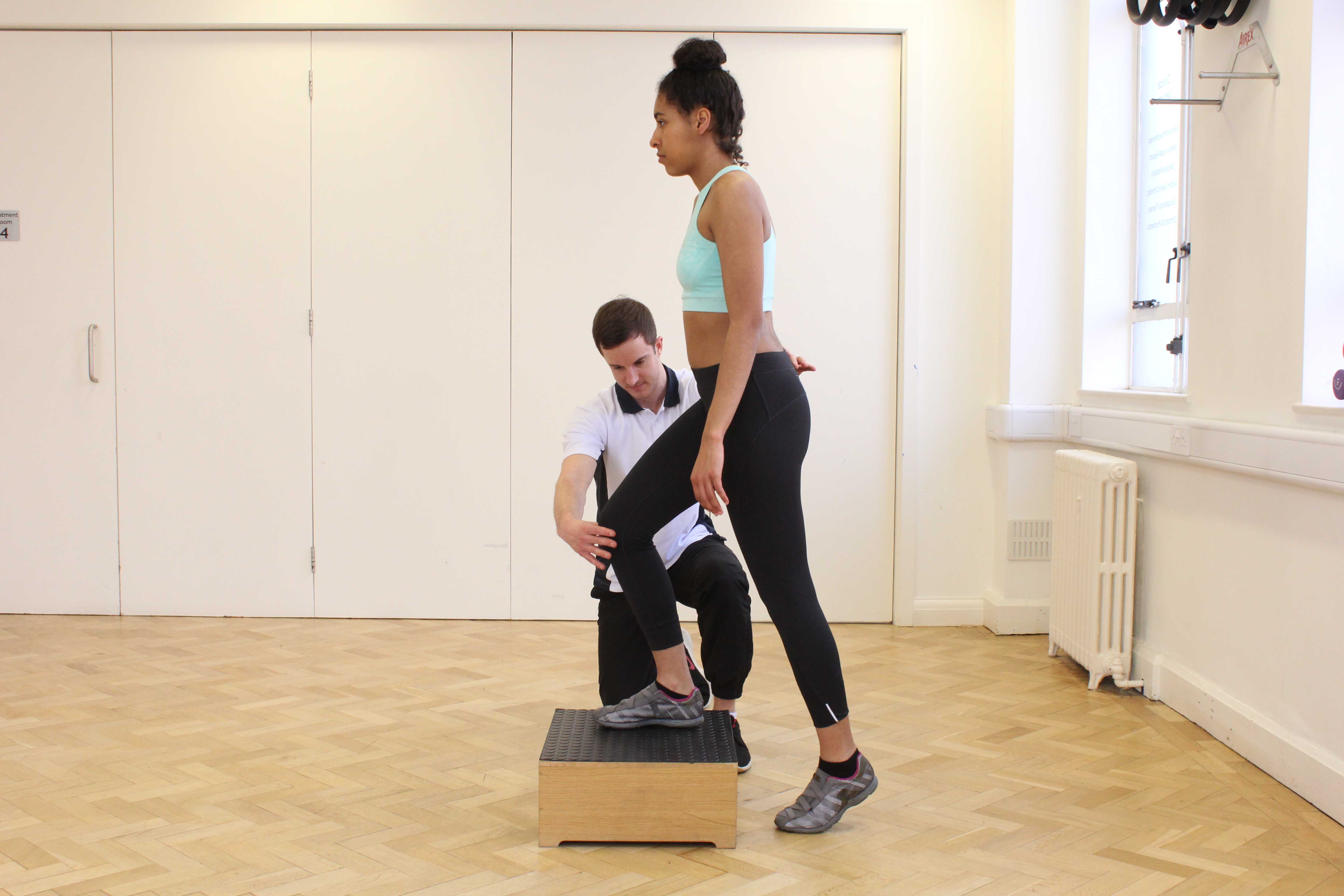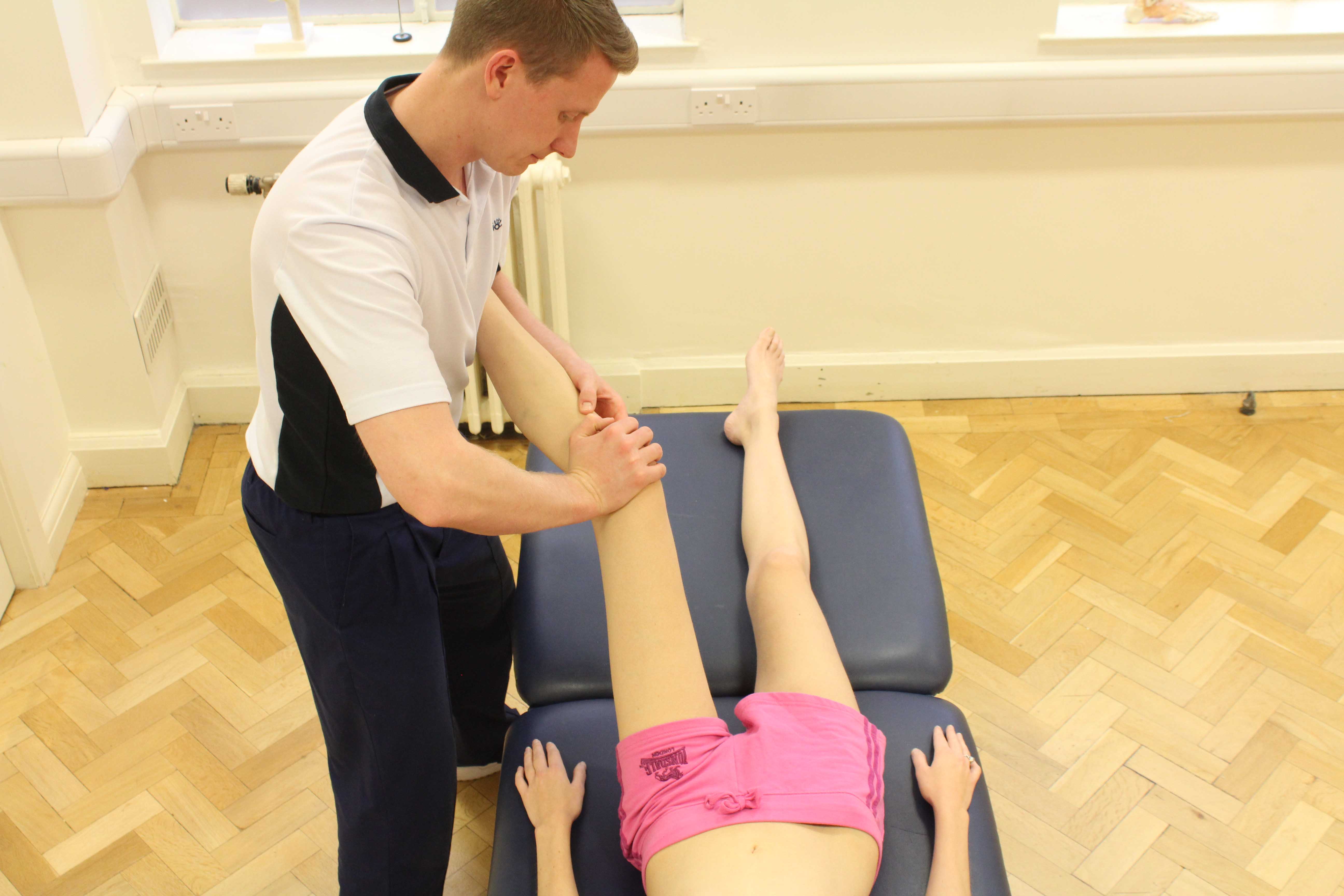Meniscal repair is commonly recommended if the tear is located on the outer edge of the menisci. This is because to repair the menisci and to allow it to heal effectively the structure requires a sufficient blood supply.
If the tear is located in the inner part of the menisci or if there is considerable amount of damage then a partial or full menisectomy may be required as the meniscus will not have a good enough blood supply to heal properly.
A surgical meniscus repair can be done by open surgery or in most cases surgeons use arthroscopic surgery where repair is done through a small incision and the surgeon inserts a thin tube containing a camera and light to examine the damage and further repair the structure using instruments that can be attached to the end of arthroscope. To repair the injured meniscus the surgeon then stitches or anchors the tear together to reapproximate the torn edges and allow them to heal in their proper place. This can be done using dissolvable stitches or arthroscopically placed tacks.
In general, if the meniscus can be repaired successfully, surgical repair is recommended as saving the injured meniscus and aiding its healing can prevent the occurrence of knee joint degeneration, long term damage or complications and even help protect against further injury to the knee.
 Above: Soft tissue massage of the muscle and connective tissues around the knee
Above: Soft tissue massage of the muscle and connective tissues around the kneePhysiotherapy before meniscal repair
A specific physiotherapy programme with Physio.co.uk before you undergo meniscal repair surgery will help strengthen your knee and better prepare it for your surgery. Additionally, physiotherapy prior to your repair will also prevent possible complications that may occur after your surgery. Initial physiotherapy is most likely to include specific quadriceps strengthening exercises and the strengthening and mobilising of other vital muscles and structures in around your knee. It is essential to maintain the mobility of your knee beforehand as this will supply the area with plenty of oxygen and nutrients to keep it in an optimal condition for surgery.
Symptoms post meniscal repair
Immediately after your surgery you will experience some pain, swelling, limited range of motion and also weakness in and around your knee. Immobilisation is necessary during the first few weeks after your surgery before you are able to resume daily activities. You will be given a brace and elbow crutches to wear for up to 6 weeks. After your repair, you will not be able to drive for 4-6 weeks. Additionally, with compliance to a specific physiotherapy rehabilitation programme with Physio.co.uk, it is estimated that you will have regained full range of motion within 4-6 weeks and be able to return to heavy work or sports from 3-6 months after your repair.
 Above: Mobilisations of the knee joint during an assessment by a MSK therapist
Above: Mobilisations of the knee joint during an assessment by a MSK therapistPhysiotherapy after meniscal repair surgery
A specific physiotherapy rehabilitation programme with Physio.co.uk that is unique to you is vital immediately post surgery and for a prolonged period of time after your meniscal repair. The main aims of your personal physiotherapy programme with Physio.co.uk initially after a meniscal repair is to control pain, swelling and bleeding in your knee joint (hemarthrosis). Additional goals in the later stages of your rehabilitation include:
- Return of normal knee range of motion
- Regain normal gait pattern and neuromuscular stability
- Regain lower extremity strength
- Regain normal proprioception (balance) and coordination for daily activities
- Achieve full return of pre-surgery condition of your knee.
 Above: Functional rehabilitation exercises of the knee
Above: Functional rehabilitation exercises of the knee1-2 weeks
The main aims of rehabilitation in the initial few weeks after your repair will focus on controlling pain and swelling, increasing range of motion and improving muscle strength. Physiotherapy will include:
- Patellar mobilisations
- Passive range of motion exercises
- Quadriceps stretches and strengthening exercises
- Calf and hamstring stretches and strengthening exercises
- Hydrotherapy
2-4 weeks
During this time the main goals of rehabilitation will be a continuation of the aims in the initial few weeks and will again focus on further improving range of motion, weight bearing, muscle strengthening, control pain and swelling. Physiotherapy will include:
- Patellar mobilisations
- Passive range of motion exercises
- Quadriceps stretches and strengthening exercises
- Calf and hamstring stretches and strengthening exercises
- Weight bearing exercises
- Balance and proprioception training
- Gait training exercises
- Gentle static bike training
- Hydrotherapy
 Above: Mobilisations of the knee joint by a MSK therapist
Above: Mobilisations of the knee joint by a MSK therapist4-12 weeks
Between 4-12 weeks the goals of rehabilitation will be focused on a continued improvement of range of motion, reduced pain and swelling. Goals will also focus on increasing strength and endurance of muscles in and around your knee and enhanced proprioception (balance) and coordination and full weight wearing. Additionally at this stage the aim will gear towards specific sport or activity related exercises. Physiotherapy will include:
- Quadriceps stretches and strengthening exercises
- Calf and hamstring stretches and strengthening exercises
- Full weight bearing exercises
- Full range of motion exercises
- Patellar mobilisations
- Balance and proprioception exercises
- Gait training exercises
- Static bicycle training
- Hydrotherapy
3-6 months
In the final stages of you rehabilitation with Physio.co.uk in addition to the continuation of progress from previous stages, your goals will now focus on enhancing neuromuscular control, progression of skill training, achievement of maximal strength and endurance and sport or activity specific exercises. Physiotherapy will include:
- Continuation of range of movement, stretching and mobilising activities
- Continuation of strengthening exercises
- Proprioception, balance and gait training
- Hydrotherapy
- Agility activities (change of direction/ rotation)
- Static bicycle training
- Gentle jogging
- Plyometric exercises (jumping)
Success of your rehabilitation with Physio.co.uk will depend on the severity and location of your initial meniscal injury and coherence to your physiotherapy rehabilitation programme.
Summary
Meniscal repair is a common procedure that is required to repair any damage or tear to the meniscus within the knee joint. Meniscal repair is highly successful when treating tears that are located on the outer edge of the meniscus. A physiotherapy rehabilitation programme with Physio.co.uk is essential after you have undergone a meniscal repair to reduce pain, regain full function of your knee and prevent any knee joint degeneration or further injury in the future. Physiotherapy with Physio.co.uk will also aid you to safely and efficiently return to your job, a high level of normal functional activities, sports or hobbies. Call Physio.co.uk now on 0330 088 7800 for more information or to book an appointment!

 0330 088 7800
0330 088 7800

































